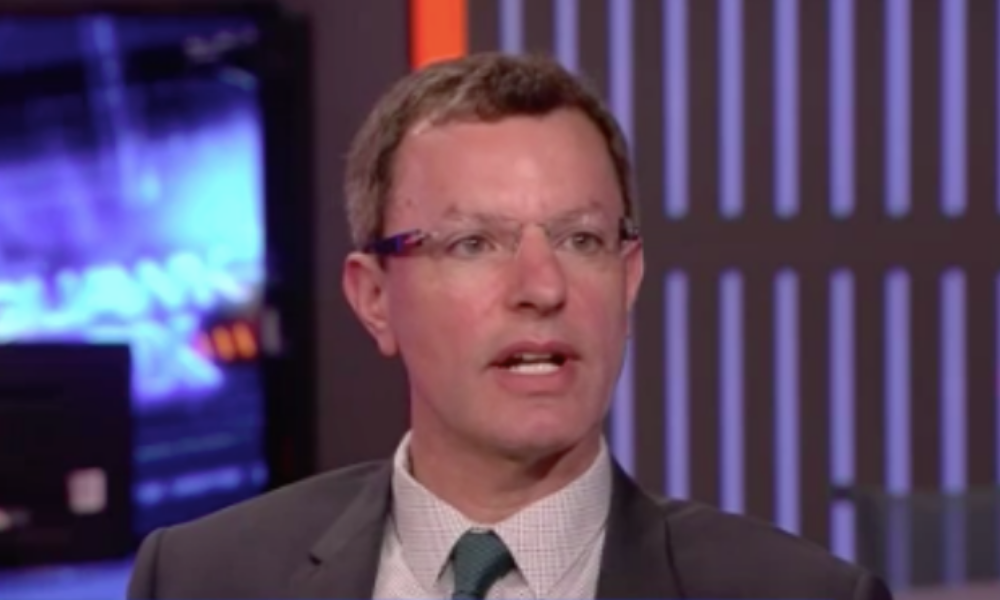Bank of England "insane" for failing to extend duration of mortgages

The UK housing market’s heavy reliance on short-term mortgages has made the country’s economy one of the most vulnerable in the world, according to a leading investment strategist.
Mike Harris (pictured), the founder of Cribstone Strategic Macro, claimed the country’s mortgage market was “heavily short-term”, pointing out that many homebuyers prefer short-term loans of less than five years, including tracker mortgages which follow the Bank of England’s base rate.
By contrast, in the US and many other European countries 30-year fixed term mortgage loans are the norm.
Speaking on CNBC in the US, he said being so reliant on short-term mortgages placed the country at greater risk when rates increased, as they have “a trigger effect” that immediately impacts on household incomes.
“This creates a problem because if you’re trying to slow the economy (in the UK)…we are ultimately trying to rebalance expectations, and the UK is a country that imports inflation.
“So we’re not effectively in a position where we’re free to just focus on supply and demand.”
He added: “We get stuck in a situation where global inflation is driving our inflation at this stage. We have to hit the consumer, and instead of just reducing the propensity to spend in the future, we’re actually taking further money out of household income, which doesn’t happen in the US.”
Harris railed against the Bank of England’s previous governor, Mike Carney, and his predecessors for not extending the use of UK mortgages, particularly in the wake of Russia’s invasion of Ukraine.
He said: “The consumer has all this extra pressure associated with the sanctions and gas prices and everything like that. So I blame Mark Carney and his predecessors for not having extended the duration of use of UK mortgages. It’s insane.
“I actually did a ‘freedom of information’ request twice to the Bank of England and asked how much of their of lending in the country is fixed at two years versus fixed at five years, and twice they explained to me they do not keep that information. And that is absolutely insane for a central bank to not appreciate the economic impact associated with every rate hike, because if it’s five years consumer behaviour is not going to change that much, but if it’s two years… a couple of years ago 70% of all mortgages or 50% of GDP would effectively be two-year or less fixed. So, on average, within a year, people know they’re going to get hit, and that changes consumer behaviour excessively.”
He compared the BoE’s response to his request to the way the Federal Reserve behaved in the US in 2007 prior to the subprime crash.
“We’re in an environment where we’re probably going to destroy more demand than we should because the Bank of England and Mark Carney didn’t do their job,” he said.
He went on: “I would say the UK is one of the most vulnerable countries in the world right now because of that dynamic and the fact that central bank governors didn’t do anything about it. They still might have some time if they have ways to extend duration now - they should actively be doing it.”
His comments come after the Bank of England raised rates by a quarter percentage point to 1% last week in a bid to curb galloping inflation, which could hit 10% later this year. Rates are now at their highest level since 2009.
According to research from trade specialist UK Finance, there are some 850,000 mortgage borrowers currently on a tracker rate mortgage in the UK, estimating that a rise in the bank rate of just 0.15 percentage points results in an average increase in repayments by £15.45 a month.
UK Finance said that about 74% of homeowner mortgages were currently on a fixed rate. However, there are reportedly 1.5 million fixed-rate mortgage deals which are due to expire this year, with another 1.5 million due to do so in 2023.
The research noted a change in borrowing trends, pointing out that 96% of new homebuyers have been choosing a longer-term option since 2019, meaning most borrowers would see no immediate increase in their monthly repayments.
The research found that the number of fixed rate mortgage borrowers opting for five-year fixed rates had also increased significantly in recent years, from fewer than three in 10 borrowers in 2017 to roughly 45% of borrowers last year.
Meanwhile, the number of people on two-year fixed rates has seen a decrease by a similar proportion over the same period.
In an interview last week, Colin Bell, the COO of newly formed company Perenna, which specialises in long-term fixed-rate mortgages, told Mortgage Introducer that the UK finance industry needed to rethink how it funded its mortgages.
He said: “The big difference with the UK…is that it funds its mortgages with deposits, so you have a one-year or five-year fix on your deposit, but essentially they’re short-term products.
“In the cost-of-living crisis, what would be better than to know your mortgage is never going to change while your electricity bills are bouncing all over the place? I think in terms of instability, long term fixes are definitely the answer…because we are seeing interest rate rises, we’re seeing inflationary pressures, we’re seeing cost-of-living prices which are hurting everyone.”



